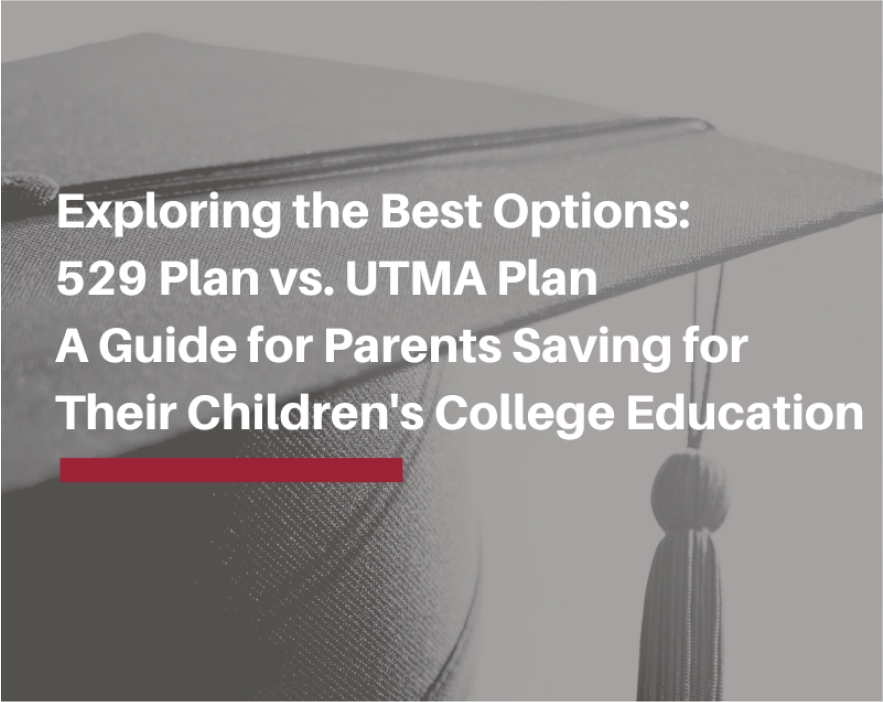Investing in your child’s future education is an important financial goal for many parents. Two popular options for saving for higher education are the 529 plan and the UTMA plan. While both of these investment vehicles can be used to save for your child’s education, they have distinct differences. In this blog, we will discuss 529 vs. UTMA so you can make an educated decision regarding which college savings plan is the best for you and your family.

What is a 529 Plan?
A 529 plan is a tax-advantaged college savings plan specifically designed for higher education expenses. The money invested in a 529 plan can be used for qualified expenses such as tuition, fees, books, and room and board at eligible educational institutions. One of the primary benefits of a 529 plan is that the earnings grow tax-free and distributions used for qualified expenses are also tax-free. Additionally, many states offer state income tax deductions for contributions made to a 529 college savings plan. However, it is important to note that if the funds are not used for qualified expenses, there may be tax implications and penalties.

What is a UTMA Plan?
The UTMA plan is a custodial account established for the benefit of a minor. The funds in a UTMA plan can be used for any purpose that benefits the child, not just education. The account is managed by a custodian until the child reaches the age of majority, which varies by state, but is usually 18 or 21 years old. At that time, the child gains full control of the account and can use the funds however he or she chooses to do so.

Key Differences: 529 vs. UTMA
One of the primary differences between the 529 plan and the UTMA plan is the flexibility of the funds. 529 plan funds must be used for qualified education expenses, whereas UTMA funds can be used for any purpose that benefits the child. Additionally, 529 plan funds are owned by the account holder, not the child, whereas UTMA funds are owned by the child.
Another key difference is the tax implications. As previously mentioned, 529 plan earnings grow tax-free and distributions used for qualified expenses are also tax-free. UTMA plan earnings may be subject to taxes and the child may be required to file a tax return if the earnings exceed a certain amount.

How to Choose a College Savings Plan That Is Best for You
Choosing the right college plan for your family depends on your financial goals and circumstances. If your primary goal is to save for your child’s education, a 529 plan may be the better option due to the tax benefits and the requirement to use the funds for qualified educational expenses. However, if you want more flexibility in how the funds are used or you have other financial goals in mind, a UTMA plan may be a better fit.

In conclusion, both the 529 plan and UTMA plan offer unique advantages when it comes to saving for your child’s future education. Consider your financial goals and the needs of your family before making a decision. Consulting with one of Smith Anglin’s trusted financial advisors can also be helpful in making the best choice for your specific situation. Click HERE to schedule your personal consultation today!




